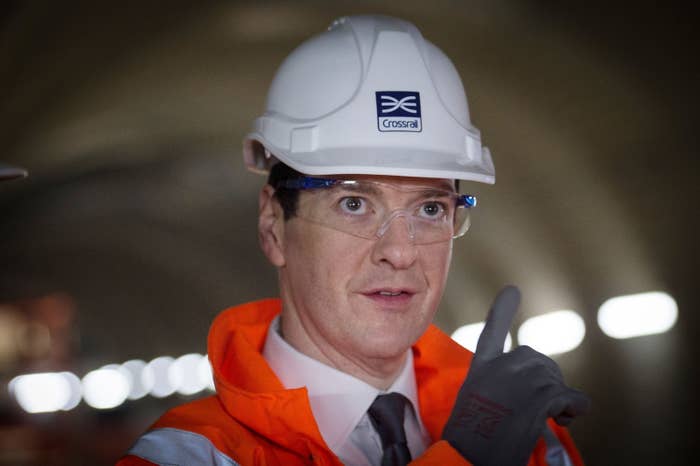
George Osborne's new plan to help young people save to buy their first home will actually have the effect of pushing up UK house prices even further, according to a line buried in the official analysis of this week's Budget.
The chancellor on Wednesday unveiled the new "lifetime ISA" to help people under 40 buy a first home or save for their retirement. For every £4,000 a year they save the government will top it up by £1000.
The objective is partly to help young people save money so they can finally afford a deposit on a house of their own.
"Young people can put money in, get a government bonus, and use it either to buy their first home or save for their retirement," the chancellor told the House of Commons.
However, the independent Office for Budget Responsibility has concluded the policy will perversely have the effect of pushing up UK house prices over the next five years because it does not deal with the fundamental shortage of new properties being built in the country.
"We think this is more likely than not to lead to higher demand for the relatively fixed supply of housing in the UK, and so to higher prices," the OBR found in its analysis. "We have therefore added 0.3 per cent to the level of house prices by the end of the forecast [in 2021]."
The agency also warned the impact could "easily be larger".
As a result, the introduction of Osborne's new lifetime ISA could actually make it more expensive for young people to buy a house because it is expected to increase demand for homes without increasing supply.
For example, someone putting aside the maximum amount of £4,000 a year – much more than many young people can afford to save – will receive an extra £1,000 free from the government. But because many people will be receiving this benefit while attempting to buy their own home, much of this bonus money could be swallowed up by increased house prices caused by increased demand.What does that mean if this person begins saving up for a London home currently worth £450,000 when the ISA scheme is introduced in April 2017? After four years of diligent savings, they’ll have a total of £20,000 in the bank: £16,000 of their own money, and a £4,000 top-up from the government.
The problem is, the the cost of the house they want to buy will have also increased by £118,800 in the same period according to the current rate of price increases with £1,350 of this price increase directly attributed to the effect of the new ISA scheme.
In short, around a third of the bonus cash a young person has received from the government through the lifetime ISA to help them buy a house is immediately eaten up by the side-effects of the lifetime ISA pushing up house prices.
What's more, the scheme could also push the cost of buying a house even further out of reach of young people who can't afford to save money at all.
Labour MP Alison McGovern, who is campaigning on the issue, told BuzzFeed News the only solution was to build more houses: “The reason young people, especially in places like London, are struggling to buy their own homes is not because they are not saving enough but because prices rocket every year faster than they could possibly save.
“This budget did nothing to address the root of the problem, which is not enough homes being built, and instead has once again boosted demand which pushes house prices further out of reach."
"The government needs to act now to cool down the overheated London housing market, not pretend to young people that their new saving schemes will actually make it much easier to get on the property ladder."
